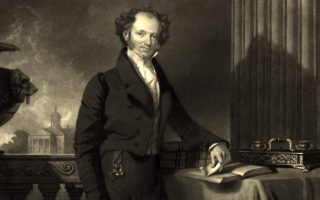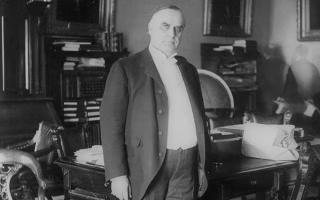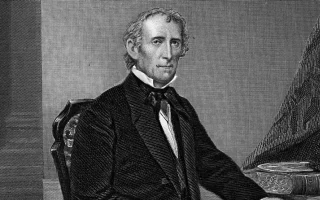kimzolciakwedding.com – Thomas Jefferson, one of the most prominent figures in American history, played a crucial role in the founding and early development of the United States. Before becoming the third president of the nation, Jefferson served as the Governor of Virginia from 1779 to 1781. His time as governor was marked by challenges, political instability, and his dedication to the revolutionary cause. This article delves into Jefferson’s time as governor, examining his leadership, policies, and the broader impact of his tenure on Virginia and the nation.
Early Background and Political Rise
Before Jefferson became governor, his career had already been shaped by his dedication to independence, republican ideals, and public service. Jefferson had long been active in colonial politics and had gained significant experience in the Virginia House of Burgesses, where he became a strong advocate for colonial rights and independence from Britain.
The American Revolution and Jefferson’s Role
The American Revolution was the backdrop of Jefferson’s political life during his tenure as governor. In 1776, as a delegate to the Continental Congress, Jefferson famously authored the Declaration of Independence. This document proclaimed the American colonies’ desire to break from Britain and form a new nation, and it cemented Jefferson’s legacy as a leading figure in the Revolutionary War effort.
By 1779, the American Revolution was in full swing, and Jefferson was elected as Governor of Virginia. At this point, Virginia was a crucial battleground in the conflict, and its leadership played a significant role in the success or failure of the revolutionary cause.
Jefferson’s Leadership as Governor
Jefferson’s time as governor was fraught with challenges, including military setbacks, political pressures, and a changing wartime landscape. His leadership faced severe tests as the war for independence raged on, and the British were determined to regain control over the American colonies.
Political and Military Challenges
One of the first challenges Jefferson faced as governor was managing the internal and external pressures on Virginia. The British Army, led by General Benedict Arnold, had launched a series of raids on Virginia in 1780. Jefferson, despite his intellectual and philosophical abilities, found himself caught in the turmoil of military setbacks. Arnold’s troops captured the city of Richmond, the state capital, forcing Jefferson and the Virginia legislature to flee. This was one of the most significant blows to Jefferson’s reputation as governor.
The British threat was compounded by the ongoing struggle with internal politics. Many Virginians felt Jefferson was not doing enough to secure the state against these military threats, and his efforts to coordinate military defense were often criticized for being inadequate. Some, including his political opponents, questioned his ability to handle both the administrative duties of the governor’s office and the demands of the war.
Jefferson’s Attempts at Military Reorganization
In response to mounting criticism and the challenges he faced, Jefferson made efforts to reorganize the state’s military and defense infrastructure. He worked to improve the coordination between Virginia’s militias, the Continental Army, and the state’s resources. However, despite these efforts, Virginia continued to suffer setbacks, and Jefferson struggled to overcome logistical and strategic challenges in the face of the British threat.
Despite the difficult circumstances, Jefferson remained committed to Virginia’s support of the war effort and sought to promote the defense of liberty. His commitment to republican principles was evident in his attempts to ensure that Virginia’s contributions to the war were in line with the ideals of freedom and independence that motivated the Revolutionary War.
The Role of the Governor in Wartime Governance
During Jefferson’s tenure, Virginia was faced with various military and administrative challenges that required decisive leadership. As governor, Jefferson took steps to address issues such as supply shortages, the recruitment of soldiers, and the mobilization of militia forces. His efforts were not always successful, and Virginia faced significant difficulties in supporting the Continental Army.
However, Jefferson’s role was not just about military leadership. He also worked to maintain Virginia’s political stability during a time of upheaval. He sought to ensure that Virginia’s laws remained in line with republican ideals and took steps to reform the state’s institutions in order to better serve the people during wartime.
Jefferson’s Domestic Policies as Governor
In addition to his challenges on the military front, Jefferson also worked to make significant domestic changes during his time as governor. His tenure marked a period of political and social transformation in Virginia as the state sought to adapt to the new realities of independence and self-governance.
Jefferson’s Views on Slavery
One of the most complex aspects of Jefferson’s political career was his views on slavery. While Jefferson was a vocal advocate for liberty and independence, he also owned slaves and was deeply embedded in the plantation economy of Virginia. As governor, Jefferson faced the tension between his ideal of liberty and the reality of slavery in Virginia.
Throughout his career, Jefferson expressed moral opposition to slavery and advocated for gradual emancipation. However, his tenure as governor did not bring about significant progress on this front. Jefferson did push for policies that would encourage the eventual abolition of slavery, but the political realities of Virginia—where slavery was deeply entrenched—made such changes difficult to enact.
Educational Reforms
Jefferson was also a strong advocate for education during his time as governor. He believed that a well-educated citizenry was essential to the success of the republic and that Virginia should invest in education to secure the future of its young people. Jefferson pushed for the establishment of public schools and the promotion of a system of higher education in the state. He believed that education was crucial to the cultivation of civic virtue and that it would help safeguard the nation from the dangers of tyranny.
Though his efforts at reform were met with some resistance, Jefferson’s advocacy for education would have lasting effects. His support for the creation of the University of Virginia, which he later founded after his time as governor, remains one of his most significant legacies.
The End of Jefferson’s Governorship
In 1781, Jefferson’s term as governor came to an end. His tenure had been a turbulent one, marked by the pressures of the Revolution and the difficulties of managing a state at war. After his time as governor, Jefferson continued to serve his country in other important capacities, including as the United States Minister to France and as the nation’s third president.
Despite the challenges of his governorship, Jefferson’s leadership during this period would influence his later political career. His commitment to republican ideals, as well as his experience in wartime governance, helped shape the political philosophy that guided him throughout his life.
Legacy of Jefferson’s Governorship
While Jefferson’s time as governor was fraught with difficulty, it had a significant impact on his legacy. His struggles with military defense, political opposition, and the evolving nature of the revolution helped to refine his understanding of governance. Jefferson’s tenure as governor also marked an important phase in the maturation of American political thought, as he sought to balance the ideals of freedom and independence with the realities of governance.
Political Philosophy and Leadership
Jefferson’s time as governor highlighted his commitment to a government that represented the interests of the people, and he continued to champion the principles of liberty, equality, and republicanism throughout his career. His experiences during his time as governor would inform many of the policies he later implemented as president.
Founding the University of Virginia
One of Jefferson’s lasting legacies as governor was his promotion of education. Though his time as governor did not see the full realization of his educational reforms, it set the stage for his later work in founding the University of Virginia. This institution became one of the cornerstones of Jefferson’s educational philosophy and continues to be an important part of his legacy.
Conclusion
Thomas Jefferson’s tenure as Governor of Virginia was a crucial period in both his career and in the broader context of the American Revolution. His leadership, despite the military and political challenges he faced, helped to guide Virginia through some of its most difficult years. Jefferson’s dedication to the principles of liberty, his vision for the future of the state, and his commitment to public service all played a role in shaping the course of American history. While his time as governor may have been marked by adversity, it ultimately contributed to his emergence as one of the most influential figures in the history of the United States.



